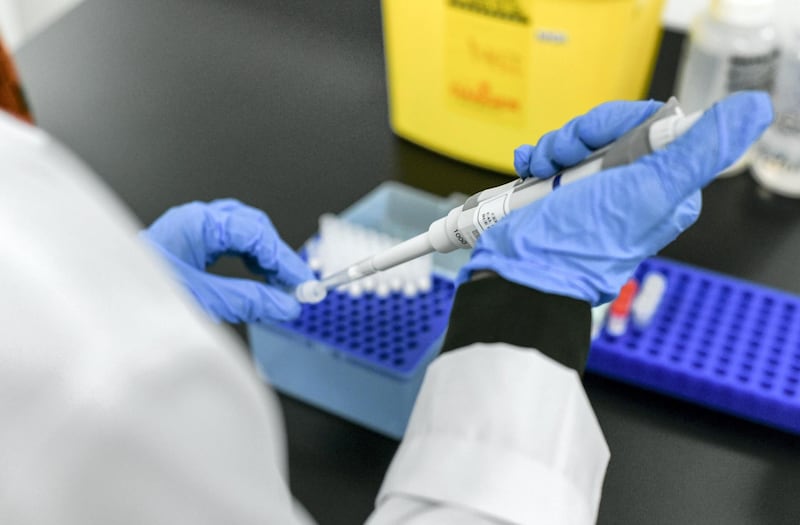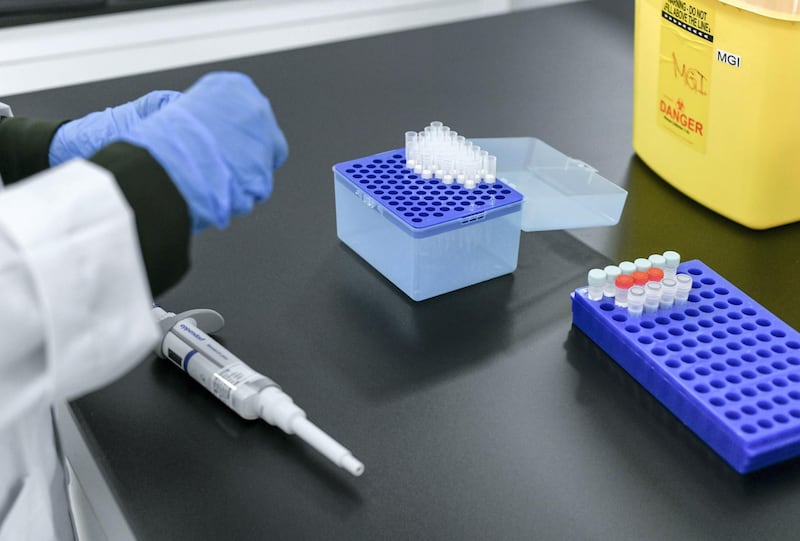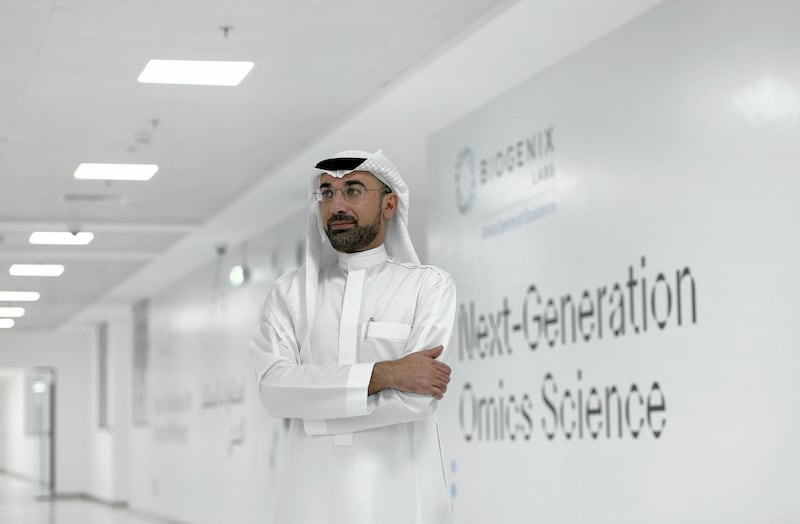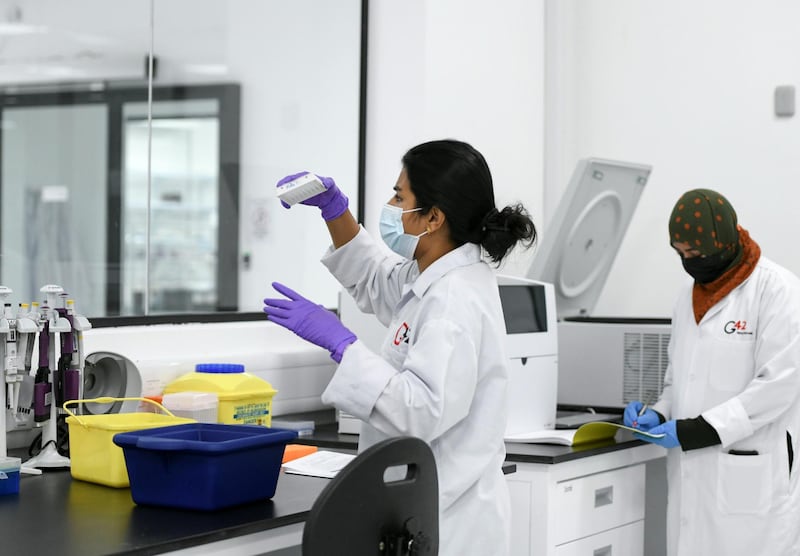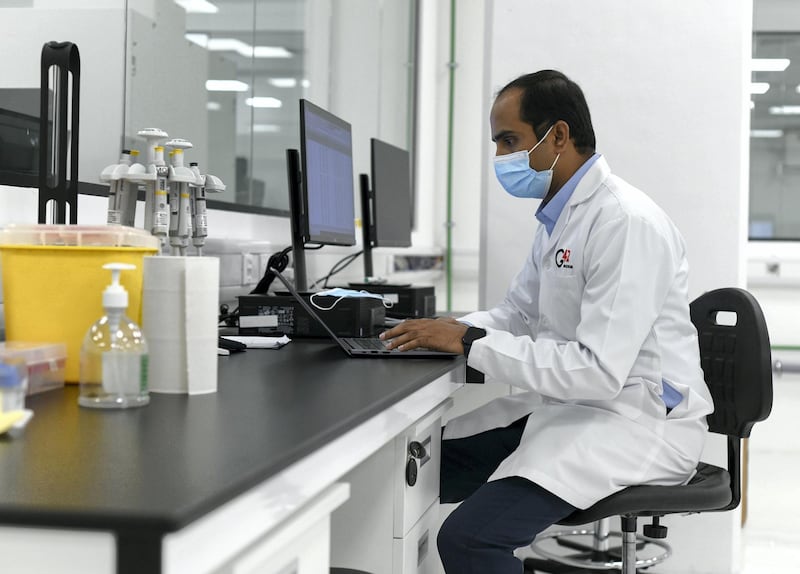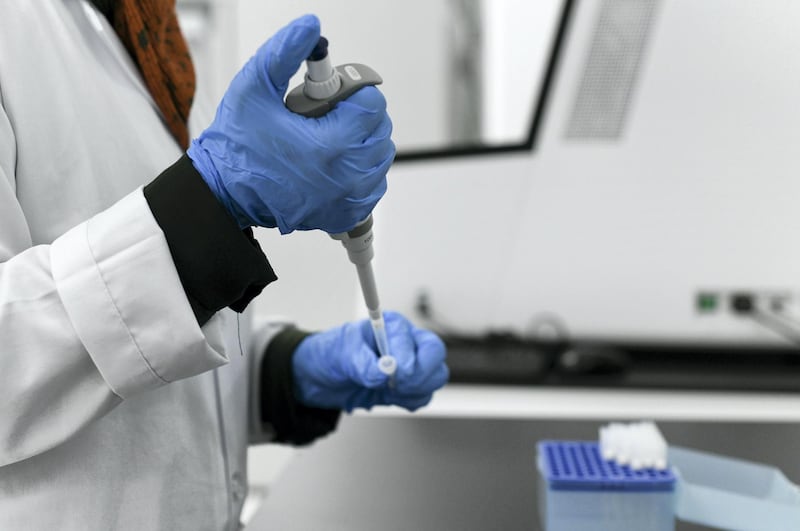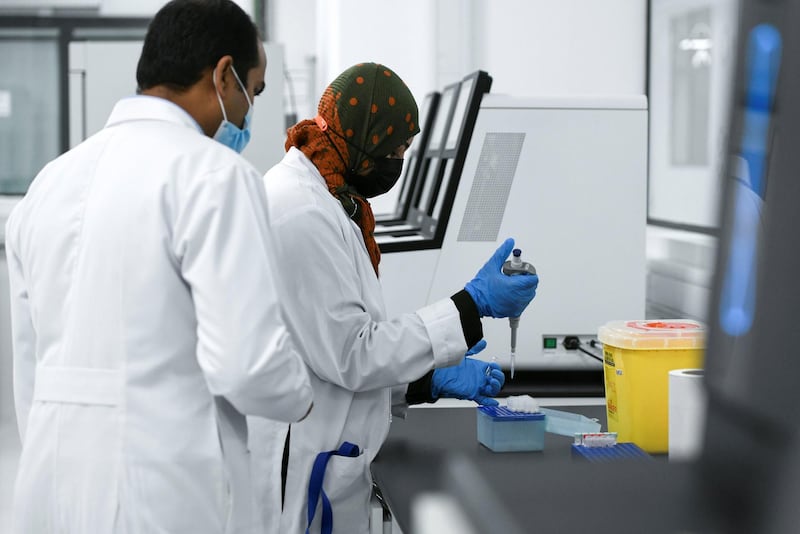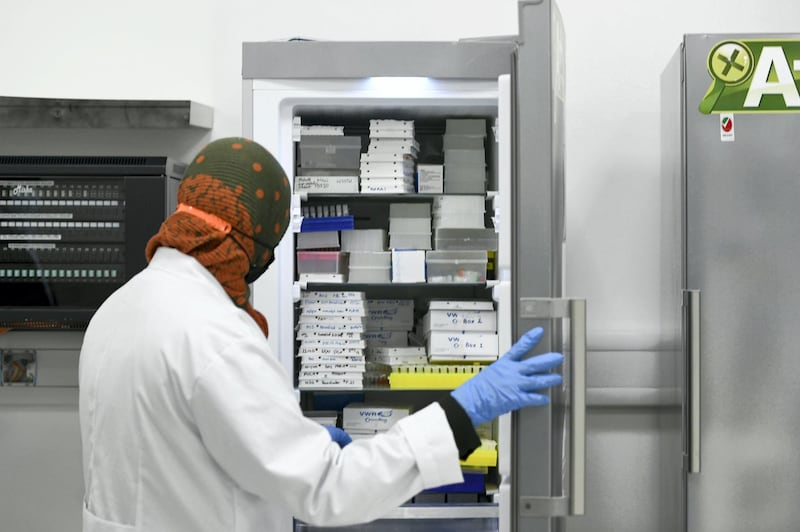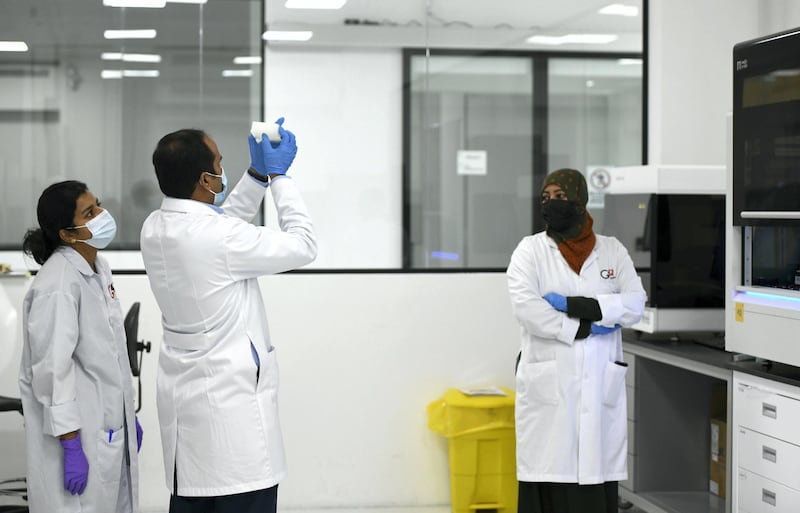The UAE's leaders have launched a national strategy to map the DNA of every Emirati as the country looks to provide personalised medical care for every citizen.
President Sheikh Mohamed and Sheikh Mohammed bin Rashid, Vice President and Ruler of Dubai, were present as the National Genome Strategy was unveiled.
More than 400,000 citizens have already submitted blood samples and DNA cheek swabs, giving scientists an insight into the health of the nation.
The aim is to collect one million samples.
The results would bring scientists a step closer to offering personalised treatment.
Genome sequencing can help in the diagnosis of conditions caused by changes in the DNA.
The strategy is based on five key pillars:
- Having a framework of legislation and governance
- Creating a harmonised and secure data infrastructure
- Developing top-tier genomic research and innovation capabilities
- Focusing on genomic applications that align with public health priorities
- Building strategic partnerships that accelerate the delivery of best-in-class programmes
“Science and knowledge have always been key drivers of the UAE’s development. Our priority is to ensure the best health care and quality of life for our people,” said Sheikh Mohamed at the launch.
Work will be carried out over the next 10 years.
“The National Genome Strategy highlights the country’s position as a hub for advanced healthcare research, innovation and future technology use,” Sheikh Mohammed said.
Sarah Al Amiri, Secretary General of the Emirates Genome Council, said the programme is considered one of the most comprehensive genomic initiatives in the world and will improve preventive and personalised health care with research and medical institutions across the UAE.
“Understanding the genetic make-up of our citizens will help medical teams deliver personalised healthcare services to each one. [The] information will help us develop solutions to limit the spread of genetic and chronic diseases, such as diabetes, blood pressure conditions, and cancer,” Ms Al Amiri, who is also Minister of State for Public Education and Future Technology, said.
“Our database today contains whole genome sequencing data from around 400,000 citizens. Our target is to collect one million samples nationwide and we look forward to the participation of all Emiratis.
“The study will help to specify the genetic health risks for each citizen and allow for preliminary prevention and personalised precision treatments.
“Work is under way on a number of clinical programmes that use the available genome data, including the first personalised precision medicine programme for oncology in the region initially targeting breast cancer, the advanced pre-marital genetic screening programme, pharmacogenomics programmes and many more to be piloted in the near future.”
It will also support doctors in taking proactive steps to reduce the prevalence of certain diseases, enable early intervention and help to identify the most effective treatments.
What is population genomics?
Population genomics refers to a new concept in terms of an individual's or a population's ancestry.
In humans, population genomics typically refers to applying technology to understand how genes contribute to health and well-being.
Using biotechnology and artificial intelligence, researchers can characterise things like genetic variation and understand how they relate to different diseases.
The more samples a laboratory can get, the more data it has to work with, which in turn allows researchers to map out a clearer picture of how the Emirati genome operates.

















